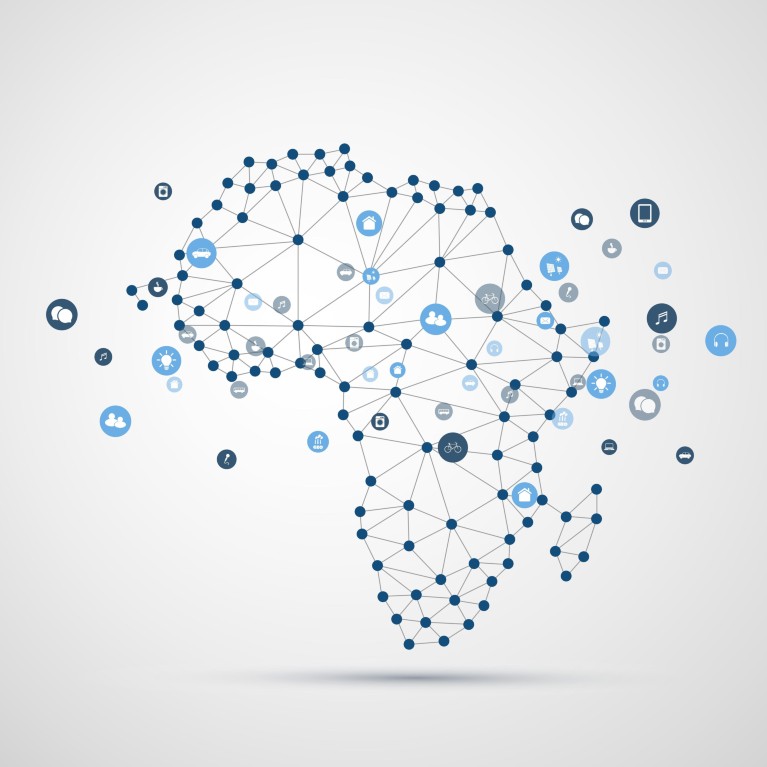
New Digital Network/Connections enhances development of future Technologies, internet of things and cloud computing in AfricaCredit: CSIRO
A new programme to establish a data science research and training network across Africa has been launched. The $74.5 million Harnessing Data Science for Health Discovery and Innovation in Africa (DS-I Africa) programme, by the United States National Institutes of Health will advance data science, spark innovation and spur health discoveries on the continent.
The University of Cape Town (UCT) will develop and manage the initiative’s open data science platform and coordinating centre, building on UCT’s data and informatics capabilities through the Human Heredity and Health in Africa (H3Africa) program. The fund will also cover seven research hubs, seven data science research training programs and four projects focused on studying the ethical, legal and social implications of data science research. Fourteen grants are made directly to African academic institutions, which will directly receive $65 million, while five grants will go to US institutions which are research training programmes working in partnership with African institutions.
Nicola Mulder, head of the computational biology at UCT and principal investigator of H3ABioNet, a Pan-African bioinformatics network for H3AfricaNature Africa that “the new programme is an excellent way to promote the use of data science in biomedical research and to pull biomedical researchers and clinicians together with data scientists. This new fund will help us to work more closely with the data generators through joint proposals to implement some of this infrastructure in new research projects.”
Among the awardees, Kenya will harness large, existing data sets to develop and validate Artificial Intelligence models to identify women at risk for poor pregnancy outcomes, and to identify adolescents and young healthcare workers at risk of depression and suicide. A hub in Nigeria will study SARS-CoV-2 and HIV with the goal of using data to improve pandemic preparedness. In Uganda, researchers will advance data science for medical imaging with efforts to improve diagnoses of eye disease and cervical cancer.
In Cameroon, research will focus on ways to decrease the burden of injuries and surgical diseases, as well as the improvement of access to quality surgical care across the continent. South Africa researchers will study multi-disease morbidity by analysing clinical and genomic data with the goal of providing actionable insights to reduce disease burden and improve overall health.
“Data answers questions about our world, and is a path to finding solutions to our problems,” says Juan H. Klopper, a specialist surgeon, who teaches courses on data science for healthcare at South Africa’s Stellenbosch University. He tells Nature Africa that “patients should be at the centre of these activities. Patients and healthy citizens must be included as equal partners together with the researcher, educators, and scientists.”
Gerald Mboowa, a bioinformatics scientist at the Infectious Diseases Institute, Makerere University, Uganda says that the programme would address Africa’s biggest challenges to data research, including poor internet access, limited computing facilities and isolated pockets of bioinformatics skills.“Apparently, the continent had been left behind in Data science, AI and Machine Learning and yet these drive the Fourth Industrial Revolution (4IR). This program will be able to promote these three fields,” he says.
“Data Science is a group effort that has grown organically and openly. We must continue to build capacity from the ground up,” says Klopper. He adds that “we must all continue to produce free and open educational resources, leverage the knowledge hidden inside of data, and continue to grow this community.”
“This is the first time such a large-scale investment is being made to build a network across the continent that will be devoted to advancing data science to generate discoveries that improve health,” says Laura Povlich, programme officer, Fogarty International Center at NIH and coordinator of DS-I Africa programme.
